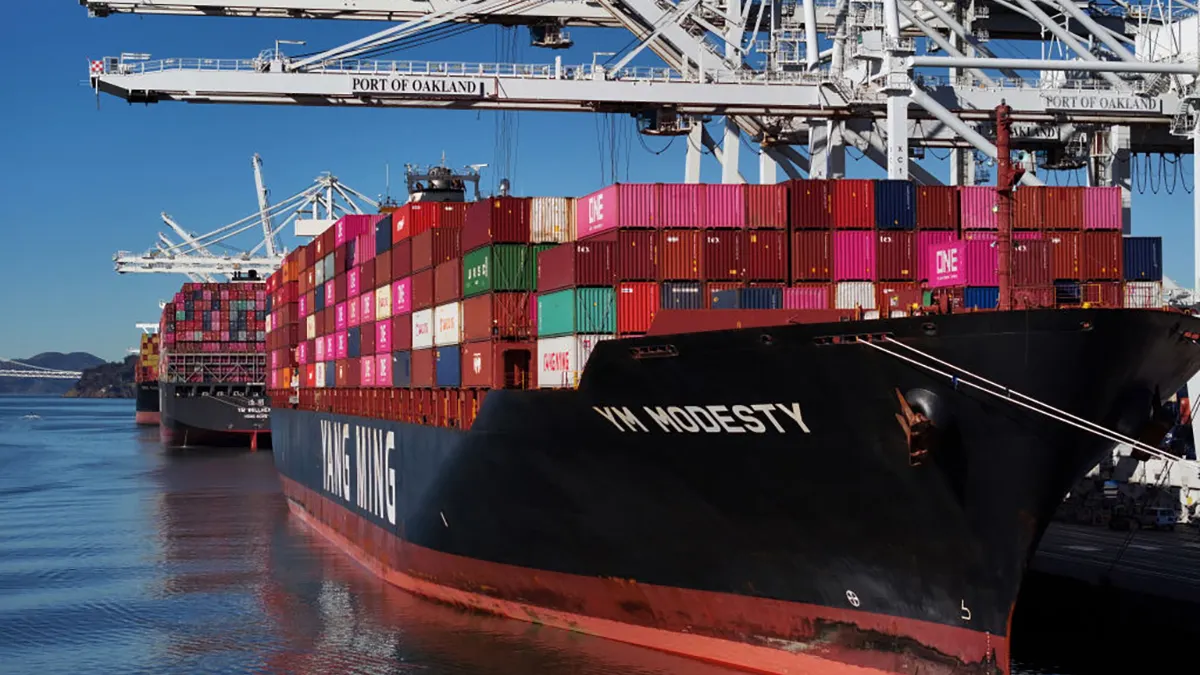As finance chiefs help their companies search for growth opportunities, more and more often they find themselves looking outside the United States rather than at home. While the domestic market remains plagued by a seemingly endless slow-growth recovery, not to mention the fierce competition endemic to a highly developed economy, emerging markets offer the allure of double-digit growth. But CFOs know — often from hard-won experience — that those developing markets not only offer the promise of great reward but also pose many risks.
How should finance executives proceed in foreign markets in 2012? In our inaugural CFO/360° report, we offer advice from several distinct vantage points, as determined by the editors who oversee our coverage of each topic area. Our goal is to provide highly focused, actionable insights to help you navigate whichever challenge is most relevant to your company’s situation. Of course, you may well decide that our entire package is indispensable. Either way, this CFO/360° report will be a very useful and efficient way to enhance your knowledge of global business practices. Throughout 2012 we will bring you quarterly CFO/360° reports on a range of core finance challenges and opportunities.
HUMAN CAPITAL
The Help
Logistical and legal challenges abound when hiring overseas.
When consultant Bill Hite told a New Hampshire client who wanted to expand into Europe that in some countries he would have to offer not two weeks, nor four weeks, nor even six weeks of holiday pay to locals who work more than a 35-hour week, but a full 36 days’ worth, the CFO balked. At the U.S. company, the most vacation time awarded was four weeks — and that was only for the chief executive.
“He could not get his head around it,” recalls Hite, whose firm, Hull Speed Associates, helps companies set up subsidiaries around the world.
U.S. companies have been expanding globally for decades, but it’s still hard for many U.S. executives to fully grasp that they’re not in Kansas — or New Hampshire — anymore. A common initial stumbling block as companies skip down the yellow brick road is the realization that while in the U.S. most employees are hired “at will” and can be let go with no strings attached, in many other countries workers have employment contracts that spell out compensation, working hours, vacation, termination, and severance — much of it more generous than what U.S. companies typically offer.
To avoid incurring such expenses unawares, finance chiefs should do their homework for each local market. Small to midsize companies that are moving abroad for the first time but are “highly U.S.-centric” are the most likely to get into trouble, says Shan Nair, founder of human-resources and accounting-services firm Nair & Co., whose clients typically have sales between $300 million and $3 billion, with anywhere from 20 to 1,500 employees worldwide. “The temptation is to do things on the cheap and cut corners, to think, ‘We’re small and won’t be on anybody’s radar screen.’” But when things don’t work out, employees may complain to the authorities, and the costs of ignoring local laws can pile up.
Companies just starting to do business abroad may believe they are on safe ground by hiring locals — particularly salespeople — as independent contractors until they determine whether the market proves profitable. But that tack can prove problematic if the person works for just one company, carries a company laptop, or drives around in a company car. Under those circumstances, he is likely to be considered an employee. In Brazil and China, in fact, it’s actually illegal for a foreign company to employ individuals as contractors. One option for new market entrants in Brazil is for the foreign company to partner with a local company that can then hire local staff. In China, foreign entities need to either establish a wholly-owned foreign subsidiary or find a joint-venture partner.
In Europe, contractor agreements can work — but typically for assignments of no more than a year. After that, Nair says, the individual gains additional employment rights. For those entering the European market for the first time, Nair recommends hiring people on a short-term contract, with no responsibilities beyond that, so that the company doesn’t incur ongoing employment liabilities.
It’s hard to undo the damage if contracts aren’t written properly. In certain European countries, for example, employees are entitled to the equivalent of an extra month’s worth of their annual base salary to pay for their vacations; U.S. employers must take care to ensure that contracts stipulate that the amount is included in the yearly salary, or they may have to provide it as an additional payment.
Meanwhile, in Finance
When it comes to establishing a finance department overseas, many global companies use a mix of local talent and expats. “As you’re getting started, it makes sense to have someone from within your company relocate to the new market,” says Thack Brown, SAP’s CFO for Latin America. “You need to make sure you have someone you trust who can keep an eye on things and extend the culture of your organization.” That person also needs to be adaptable and willing to learn what are typically quite different tax and labor laws.
Brazil, where Brown has lived for the past 10 years, is renowned for its Byzantine tax structure (see “Brazil Is Booming [and Maddening],” CFO, July/August 2010). “New pronouncements or interpretations are made every single day,” he says with a sigh. “I’ve spent a lot of time educating my parent-company counterparts on what is going on here. So many things come up and they say, ‘That can’t be right. Is that really the way things work?’ If you don’t have someone in the parent company who is open to hearing about these differences, you can really struggle.”
When hiring locals as finance-department managers, Brown recommends looking for people with experience at multinationals, or those who have studied extensively abroad. Career-oriented social media sites such as LinkedIn are becoming a major source for leads in many countries. NetSuite CFO Ron Gill says his firm has increasingly relied on the service to help identify local finance talent in Manila since establishing a shared-services center there in 2007.
Foreign companies should not expect such talent to come cheap, especially in booming economies. Professional salaries in emerging markets like the BRIC countries (Brazil, Russia, India, and China) are fast approaching, or even exceeding, those in the U.S.
Local finance executives also need to understand the ethical and compliance standards they are expected to uphold. For example, U.S. companies must comply with the Foreign Corrupt Practices Act, which prohibits making bribes to win business. But in a number of countries, like China and Saudi Arabia, such practices are common, says Blythe McGarvie, a former CFO and now CEO of LIF Group, a strategic consultancy. She says one of the biggest risks is hiring someone who is rooted in the local traditions and feels pressure to conform rather than uphold U.S. law. “I’ve had to fire people for that,” she says.
Internal checks and balances are crucial to avoiding such problems. Brown recommends that the CFO establish a direct personal relationship with outside auditors and lawyers in the foreign country; such advisers should report to him. The CFO should hold in-person meetings with local finance staff once or twice a year, and the parent company should conduct surprise audits of the local unit several times a year as well, says Brown.
GROWTH COMPANIES
Howdy, Partner
Identifying a like-minded venture partner can be the key to success in a new market.
Bill Chorba, CFO of innovation-services provider NineSigma, is a fan of what he calls a “de-risking” approach to global expansion: joint ventures. “We prefer to dip our toe into a market, rather than doing a swan dive,” he says. By working with a local partner, his company can get the lay of the land as it develops its expansion strategy.
The company’s caution is due in part to the nature of its business, which involves providing everything from facilitated technology services to coaching and consulting to helping companies enhance their innovation capabilities. With significant intellectual property at stake, Chorba says NineSigma can’t be too careful.
“We look to where there is a cultural and philosophical alignment regarding the treatment of intellectual property,” he explains, singling out South Africa and Brazil as countries he has found to be impressive on that score.
To make joint ventures work, companies must be clear about their objectives, says Larry Harding, founder and president of High Street Partners, a consulting firm that assists clients with overseas expansion. Harding notes that in a joint venture, “you’re replacing one set of risk variables with another.” And while the CFO may not be the one making all the decisions regarding a partnership, he’s typically the one charged with making it work out financially.
“If you’re going into a joint venture, you have to figure out what the management structure is,” says Harding. “How do you split the profits? What do you do if it’s a loss-making enterprise? And who has the decision-making power?”
Evaluating the risk and figuring out how to unwind the marriage if it doesn’t work are typically the issues foremost in a CFO’s mind. One way to handle such challenges is to adopt a revenue-sharing model, an approach that NineSigma favors. “We don’t commingle funds. We don’t invest in them, and they don’t invest in us,” says Chorba. Working with a third party in another country might slow market penetration, he acknowledges, but NineSigma has built that lag time into its business model.
“We need the common understanding up front,” Chorba says, explaining that the company will have a memo of understanding to state the objectives. While not a binding agreement, it lays out the compensation and revenue-sharing models and explains how each party will benefit. The company then creates a pilot to test how effective the union is.
Management from afar can be tricky, so it’s important to provide guidance and resources to help the local expansion teams without micromanaging them, Chorba adds. Instead, ongoing collaboration among the delivery teams is essential for quality control and consistency. NineSigma also has a global team of executives who spend days at a time meeting with its partners at least a few times a year.
The lack of control that a partnership involves is one of the pitfalls of going the joint-venture route, says Jeff Wakely, CFO and treasurer for TechTarget, an online business media company. He cites the company’s partnership in China as an example. “To go into China and start from a dead stop is very difficult,” he says. But forming a partnership there can be a nightmare in its own right. Managing accounts receivable is one challenging arena. Wakely says that Chinese companies may take as long as a year to pay. Moreover, expenses are often reimbursed in cash. “A lot of practices aren’t well documented. You have to be in front of that,” he says. After participating in a partnership in China for two years, TechTarget has taken over the operations of the partner company, Keji Wangtuo Information Technology, to ensure tighter control of the operation.
A joint venture is not always an alternative to setting up a permanent office or hiring employees. More often, it is a step in the process. But since the agreement is with a business entity, not an individual, the U.S. finance chief does not have to worry about complying with local labor laws or paying employee-related taxes, which are the responsibility of the local partner. “That’s a huge benefit to us,” says Chorba.
TECHNOLOGY
Learning to Share
CFOs need to look beyond cost savings when weighing a move to shared services.
While much overseas expansion is driven by the desire to tap into a new universe of customers, there are other motivations. Often U.S. companies see a chance to save by establishing shared-services centers overseas, where the cost of providing IT, finance, and a range of back-office functions can be considerably less than providing them from a U.S. base of operations. While the global reach of the Internet certainly makes such efforts more viable than ever before, a host of other factors play a role in finding the right site for an offshore location.
In 2011, Quest Software CFO Scott Davidson set up a shared-services center for the firm’s European operations in Ireland. Now a predominant portion of the sales support, finance, and accounting for its European offices is consolidated through the Irish shared-services center. The move helped Quest save money, but Ireland is “not purely a place to go because it’s less expensive,” says Davidson. While pricier than Asia, Irish labor costs are about 10% cheaper than the rest of Europe, and labor laws are more employer-friendly. More important, the government has invested in education and technology infrastructure development, so the country now has well-trained engineers and finance professionals who have experience with the shared-services model.
Before deciding where to set up a shared-services center, companies should decide which regions they want the center to support, which functions staffers at the center should perform, and what the time line will be for making the transition to the new structure. Davidson can tick off a number of countries where he would not want to put a shared-services center — and why. The risk of political instability and the lack of broad language skills are high on his list of concerns in certain low-cost areas. Davidson has nixed India for its limited infrastructure and higher employee churn rate, and China for its political environment.
Depending on the complexity and scope of the processes involved, the move to an offshore operations center can vary widely, from mere weeks to many months. Working with an outsourcing partner can help accelerate the process and smooth over bumps. For example, EXL, a provider of outsourcing services, has successfully migrated key business processes for clients like American Express, Travelers, and Centrica. Initially, the firm staffs these locations with both locals and employees from corporate headquarters for six months to a year. The most difficult and most important decision is hiring the right leadership for the center, says Rohit Kapoor, president and CEO at EXL. That person will be responsible for building the corporate brand in the region, and needs to be connected with regulators and be knowledgeable about local regulations.
Processes that can be standardized and centralized can more easily be moved to offshore locations, but those that require substantial human interaction or language fluency, or that have specific regulatory requirements, can be more difficult to move to a shared-services center. For example, vendor payments can be made from virtually any location, but sensitive employee records are harder to aggregate offshore because errors can create huge employee dissatisfaction. Pilot programs can help smooth the transition, says Kapoor.
Michelle Celarier is a New York–based writer.




















